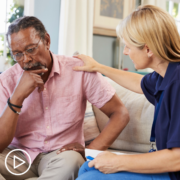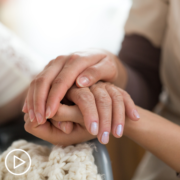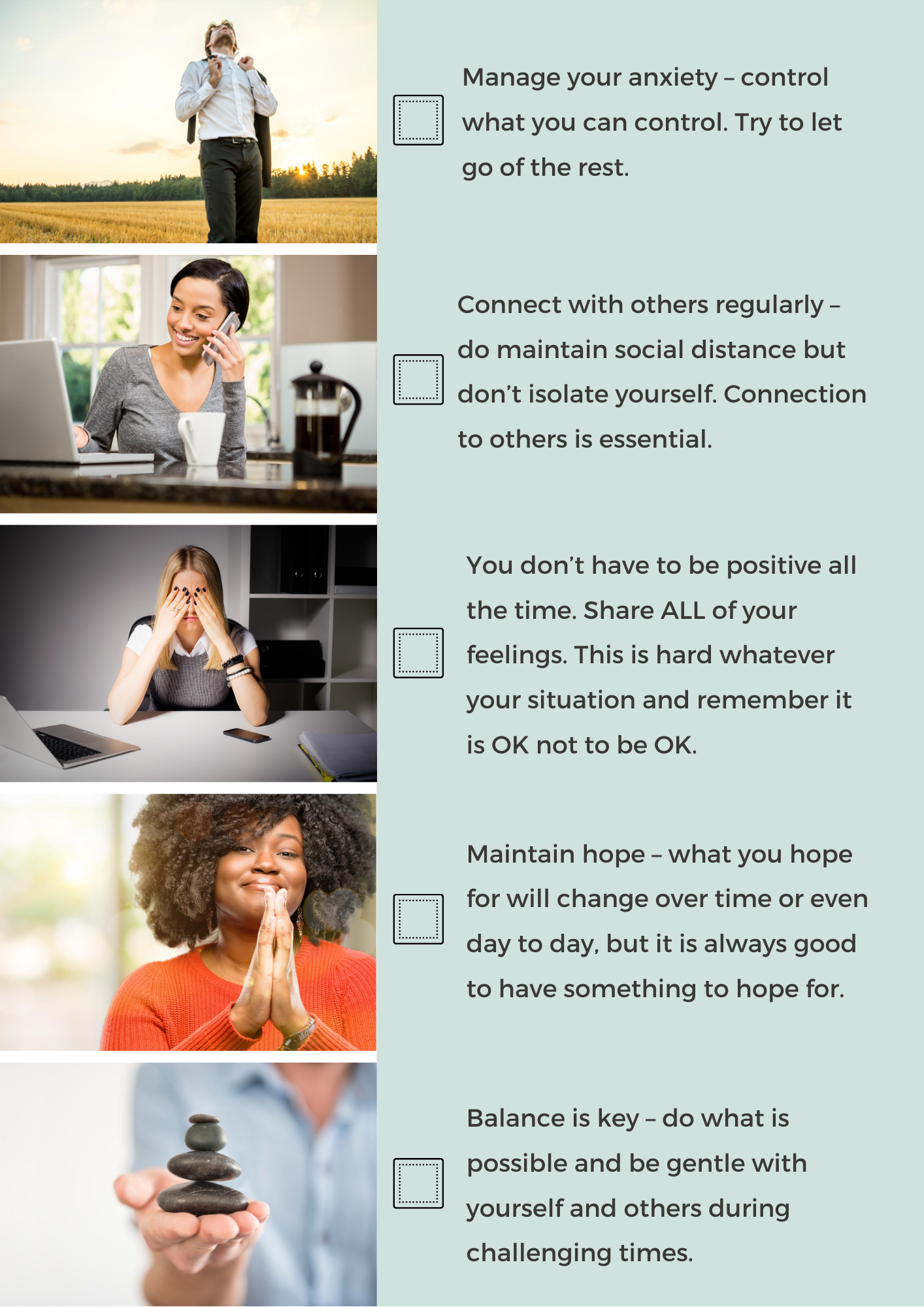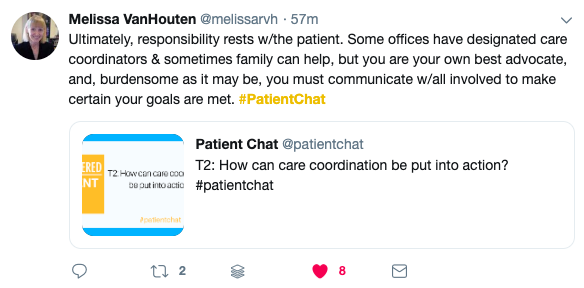What happens when someone close to you has been diagnosed with cancer?
How do you find the right words to say?
What is the best way to support them?
And how do you cope with your own emotions and feelings at the same time?
In this month’s article, I am sharing advice that comes directly from those who have personal experience of cancer – either as a patient themselves or as a friend or family member to someone with cancer. The following tips are some of the things that friends said and did that were most helpful to cancer patients at the time of diagnosis and treatment.
Firstly, acknowledge that this can be a hard time for you too
Hearing that a friend has been diagnosed with cancer may impact you in ways that you might not be prepared for. You may have many different emotions to cope with. You may feel angry, sad, and scared that this is happening to your friend. You may even find the news hard to take in and feel numb. Breast cancer survivor, Nicole McClean[1] describes her feelings of numbness on hearing the news that her best friend was diagnosed with the same disease: “I didn’t know what to feel. I didn’t know what to say. Everything I had said to other people didn’t really apply because this was MY friend. Not a stranger that I was comforting. Not even myself that I had to give a pep talk to.”
But don’t make it about you
In the shock of hearing about a friend’s diagnosis, it can be tempting to slip into a place of dwelling on your own fears and anxieties. Nicole cautions others not to make this about themselves. “Please don’t be a friend like me. Don’t be the friend who makes the person with the diagnosis have to stop her own grieving to console you,” she says. “This is her moment. Her time to BE consoled. I don’t ever want her to feel like she needs to console me or comfort me during this time. That’s no longer her role. It is now mine.”
Just ask what’s needed
“My number one tip,” says radiation oncologist, Dr Matthew Katz (@subatomicdoc), is “just ask what you can do to help. It can be hard to predict and may vary at different times in the cancer experience.” Breast surgeon, Dr Deanna Attai (@DrAttai) agrees: “Ask the patient what do you need, ask if they just want some company to sit, listen and be present.”
Above all, advises author and advocate, Nancy Stordahl (@NancysPoint) “don’t try to be a fixer and please, avoid using platitudes. Don’t tell her she’s strong, brave or courageous. Don’t add to her burden by making her feel she must live up to some gold standard of “doing cancer right”. Let her be real. Witness her pain. Listen. Just be there.”
Listen, hear and do
“The steps to being a good friend and supporter are simple”, says Nicole, “Listen and do.” The first part is listening. “Listen to her. Or just sit with her silently. But either way, give her space where she’s comfortable sharing with you what’s in her heart without that moment becoming about you.“
John Moore (@john_chilmark), founder of Chilmark Research, echoes this when he says: “Listen, truly listen and they will open up in time to the fear they hold within – just how scary it can be at times.”
Julia, co-founder of online breast cancer support community @BCCWW agrees. “Listen and hear,” she advises, “if they have bad days let them, cancer isn’t fun times. Flip side: if they feel good, believe them.”
And it’s ok to not know what to say sometimes.
“Something that I think is helpful is for friends and family to remember that it’s okay if you don’t know what to say to the person with cancer,” explains Lisa Valentine (@HabitgratLisa), ·who blogs at habitualgratitude.com. “Show up, say “I don’t know what to say, but I am here for you.” Take it from there. Showing up and listening usually takes care of what can happen next.”
HER2 breast cancer patient, Tracy (@tracyintenbury) suggests offering to go to “chemo sessions if the person with cancer would otherwise be attending alone.” Metastatic breast cancer patient, Ilene Kaminsky (@ilenealizah) appreciated those who attended medical appointments with her “especially during the first months when everything seemed to proceed at the pace of tar, and again during critical appointments/ chemo days.”
Do what needs to be done
“Don’t ask her what she needs, just do something that she needs,” recommends Nicole. “Show up, and help out.” Chair of Cardiomyopathy, CR UK patient board and NCRI rep for kidney and bladder cancer, Alison Fielding (@alisonfielding) agrees: “Make specific offers of help such as lifts, company or chores rather than waiting to be asked.”
“Anyone who said let me know if you need anything wasn’t going to get an answer,” explains Ilene “so during difficult times, one or two of my friends would do my wash, change the sheets and put the clothes away. She’d bring me smoothies while I’d be knocked out from my pre-taxol Benadryl and knew exactly what I’d like.”
Clinical Professor of Pathology, Dr David Grenache (@ClinChemDoc), cautions following through with offers of help. “From experience: when you tell them you will do what you can to help, then follow through with that when you are asked for help. You may have to drop a high priority task but when the call for help comes. Go!”
Victoria (@terrortoria), founder and community manager of @YBCN_UK (which supports young women with breast cancer), recalls a friend who “made home made soup for me when I told her I couldn’t bring myself to eat things. She left them on my doorstep as I couldn’t bring myself to see people either for a time. It was a 90-minute round trip for her. She’d listened to how I felt and then helped me within my limits.”
This theme of cooked meals comes up again and again.
“Cook meals so the person with cancer has something warm and nutritious,” recommends Tracy. Maureen Kenny (@MaureenKenny1), a patient living with secondary breast cancer, agrees, saying “you can never go wrong with a cooked meal.”
After a long day in hospital, breast cancer patient advocate, Siobhan Feeney (@BreastDense) recalls the day she came home to find “in the porch, cooked dinner, homemade bread, marmalade and fresh eggs.” A gift she says she’ll never forget.
Alleviating the pressure of cooking and housework is a super practical way to help a friend with cancer. Sarah Connor (@sacosw), shares a story about her neighbor who “came once a week, took away a basket of dirty clothes, brought them back washed, dried, ready to put away. She didn’t know me very well. Still makes me tingle.”
Give thoughtful gifts
From warm socks and soft blankets to body lotion and lip balm, there are many gifts you can bring a friend who is going through treatment. Beverly A. Zavaleta MD[2], author of Braving Chemo, writes: “Each time someone sent me a gift I felt a connectedness to the giver and to the “outside world,” which was a welcome escape from the cancer world that I was living in… when I received a gift, I appreciated the time that that person took to remember me, to think of what I might need and to choose, assemble or make the gift.”
Breast cancer survivor, Karen Murray (@murraykaren) recommends practical gifts like “hand cream (skin very dry after chemo), gel for mouth ulcers (also common), some nice sweets/fruit.”
Male breast cancer survivor, Dennis Keim (@denniskeim) suggests “a jar of Aquaphor might be a nice gift. Especially if their skin is getting hammered by chemo.”
“Help the cancer patient pamper themselves,” proposes Lisa Valentine. “You know your friend or family member well enough–get them something they wouldn’t get themselves because they would think it’s extravagant–i.e. the expensive chocolate or a pedicure.” What may seem like an indulgence can also be extremely practical. “Taking me for gel nails protected my ever softening nails,” explains Ilene Kaminsky.
Although be mindful that not everyone appreciates the same things.
“I wasn’t interested in toiletries, candles. Wine gums – they mask the taste of a nasty pre-chemo antiemetic,” says Syliva (@SylviaB_). “People often think buying flowers is naff. I adored it when people bought me flowers. A couple of people bought spectacular flowering plants.” Breast cancer blogger, Sheri[3] received the fabulous gift of a monthly subscription to in-home flower deliveries during treatment.
Help with treatment decisions
If you have already been through cancer yourself, your friend may turn to you for treatment advice. You can guide them to helpful resources and share your own experience, but ultimately the final decision is theirs alone. Sometimes you may not agree about treatment decisions. This can be hard for both of you. Try to accept this and support their decision. “I think not being critical with someone’s choices is very important. Support should not be in spite of circumstances,” says Ilene Kaminsky.
Offer compassion and kindness
Two-times breast cancer survivor and patient advocate Terri Coutee[4] believes the best gifts you can offer a friend is compassion and kindness. “Hold a hand if you are with a friend or loved one in person,” she advises. “You don’t even have to say anything. Perhaps your warm, human touch is enough. Tell them you have no idea how they are feeling at the moment but want to support them in any way you can. Be sensitive to the fact they may only need someone to listen, not advise.”
John Hanley (@ChemoCookery) considers “small practical actions and warm, soothing, short reassuring words are perfect.” Words like “I’m going nowhere and I’ll be here shoulder to shoulder when you need me. A little note/text/card “Here for you 24/7 anytime.”A HUG, an Embrace, a hand, eye contact.”
Sara Liyanage, author of Ticking Off Breast Cancer [5] reminds us that “a cancer diagnosis turns your world upside down and overnight you can become scared, emotional, vulnerable and anxious. Having friends and family step up and show kindness is a lifeline which can carry you through from diagnosis to the end of treatment (and importantly, beyond).”
Treat your friend like you normally would
Researcher, Caroline Lloyd (@TheGriefGeek), cautions us not to “make it all about the cancer, they are still a person.” Writer and metastatic breast cancer patient, Julia Barnickle (@JuliaBarnickle) agrees. “I prefer to keep conversation as normal as possible for my own sake – I don’t want cancer to take over my life.”
Stage 4 melanoma patient advocate, Kay Curtin (@kaycurtin1) suggests you talk to your friend “like you would any friend. We haven’t suddenly become aliens who require a different style of language,” she points out. Sherry Reynolds (@Cascadia), whose Mom is a 15-year metastatic breast cancer patient, talks about how her mother “really appreciated it when people talked to her about regular things vs always talking about her cancer or asking how she was doing. She was living with her cancer, it wasn’t who she is.”
Know when to back off
“What I didn’t want, which is equally important, was people trying to encourage me to go anywhere or do anything,” says Syliva (@SylviaB_).“ I spent a lot of time on my sofa and felt guilty saying no to people who wanted me to go out.”
Knowing when to be there for your friend, and when to give them space isn’t always easy. but it’s an important balancing act as a good friend. In Tips for Being A Great Cancer Friend, Steve Rubin,[6] points out that “sometimes, the overstimulation from nurses popping in, PT sessions, and all the tests/drug schedules can become so exhausting that you just want to be left alone. Other times, the loneliness kicks in and you could really use a friendly face.”
It may take time to find the right balance, so let your friend guide you. Nicole McClean shares her experience with her friend: “I haven’t spoken to her a lot. I didn’t want to become that sort of pesky, well-intentioned friend who searched for every little thing that might show how she was feeling at any particular moment. Because I know that her feelings would change from moment to moment and sometimes… sometimes it’s just too much to have someone repeatedly ask you… “how are you really feeling?” even when you know they mean well. At this point, I am letting her guide me into how much she needs me and where she wants me to be.”
At the same time, Terri Coutee advises gentle persistence: “Don’t give up if you offer help and they don’t respond. Revisit your offer to do something for them with gentle persistence. One day they may decide they need your help,” she says. Maureen Kenny recalls “a friend who texted me every time she was about to go shopping to see if I needed/wanted anything while she was out. I rarely did but I always really appreciated her asking.”
Make your support ongoing
Support is not just one and done. In the shock and drama of a crisis, friends rally round, but once the shock has worn off many disappear. True friends stick around long after the initial days, weeks and months of a cancer diagnosis. Ilene asks that friends continue to“remember birthdays, cancerversaries, and remember me on holidays. A card means a lot even to just say hi.”
Final thoughts
Many studies have found that cancer survivors with strong emotional support tend to better adjust to the changes cancer brings to their lives, have a more positive outlook, and often report a better quality of life. Research has shown that people with cancer need support from friends. You can make a big difference in the life of someone with cancer. [7]
“I personally loved just knowing I was cared for, says lobular breast cancer campaigner, Claire Turner (@ClaireTTweets). “A number of friends didn’t contact me or come and see me and that hurt, so simply be there in whatever way means something,” she advises.
“The truth is basic,” says Nicole McClean, “nobody wants somebody they love to go through cancer. Especially if they’ve been through it themselves. You want people you love to be spared this type of hardship. But you can’t protect them from it. You can only help them through it. Be there for them in the ways that they need.”
Tailoring your help to what your friend needs and enjoys most is the best way to be a friend to them. As four-times cancer survivor Sarah Dow (@he4dgirl) points out “the answers will surely be as varied as we are, both in life generally, our experience of cancer, and our connection with our friend.”
[1] Nicole McClean. My Fabulous Boobies.
[2] Beverly A. Zavaleta MD, The Best Gifts For Chemotherapy Patients
[3] Life After Why
[4] Terri Coutee, DiepCJourney
[5] Sara Liyanage, “What To Do (And What Not To Do) For Someone With Breast Cancer”
[6] Steve Rubin, The (Other) C Word
[7] American Cancer Society, “How to Be a Friend to Someone With Cancer”
A Stanford Medicine X e-Patient scholar, Marie Ennis O’Connor is an internationally recognized keynote speaker, writer, and consultant on global trends in patient engagement, digital health and participatory medicine. Marie’s work is informed by her passion for embedding the patient voice at the heart of healthcare values. She writes about the experience of transitioning from breast cancer patient to advocate on her award-winning blog Journeying Beyond Breast Cancer.













